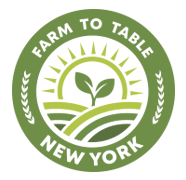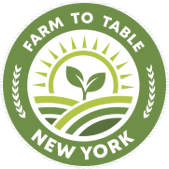 Local Growers Fight Hunger
Local Growers Fight Hunger
The New York State farmers market experience is truly unique and valuable to both producers and consumers alike. How do local farmers markets fight food insecurity? As a source of fresh, locally produced food, New York State farmers markets are helping to build vibrant new communities, while fostering strong connections between rural growers and urban consumers.
By providing access to affordable and nutritious food, New York State farmers help to reduce food insecurity and improve the health of New Yorkers. Additionally, New York State farmers markets are a great way to support local growers and small businesses while also stimulating the economy. Their variety of products are an essential part of the cultural fabric of New York State, providing an opportunity for people to connect with one another and learn about new cultures through traditional food offerings.
Visitors to local markets can enjoy all these benefits while buying fresh produce grown right in your own backyard.
From the largest venues for growers such as the New York City Greenmarkets, to the smallest community groups, NY farmers markets all serve the same purpose and serve the same types of residents. The new york state farmers markets offer a wide variety of fresh local produce, meats, dairy products, eggs, artisan goods and other food items.
Combating Local Food Insecurity
Communities affected by poverty or food insecurity can benefit from New York State farmers markets. Farmers markets in NYS provide access to fresh fruits, vegetables, and other locally produced items that may otherwise be unaffordable or unavailable to community members experiencing food insecurity.
Many farmers markets also accept Supplemental Nutrition Assistance Program (SNAP) benefits, allowing individuals and families with limited resources to purchase healthy local foods. Additionally, some farmers markets offer special programs such as double-up Food Bucks that match SNAP dollars spent for additional produce purchases up to a certain amount.
These initiatives allow limited resource households to stretch their food budgets to obtain more fresh produce than they would otherwise be able to purchase. Furthermore, some farmers markets partner with non-profit organizations in the area providing nutrition education classes and free cooking demonstrations which help recipients of SNAP benefits learn how to prepare delicious and nutritious meals. In this way, farmers markets provide an important service to those struggling with food insecurity by helping individuals gain access to healthy and affordable local foods.


